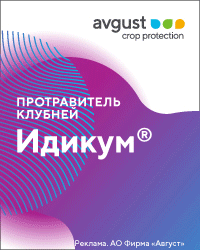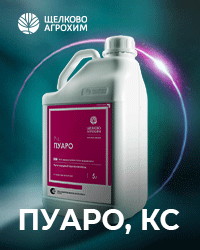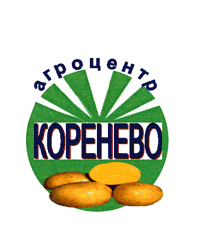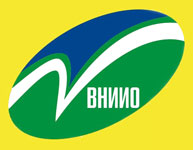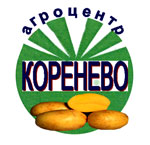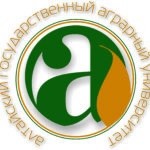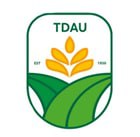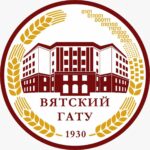UDC 635.132:631.526.32
https://doi.org/10.25630/PAV.2019.82.1.011
L.A. Yusupova, L.M. Sokolova, A.V. Kornev, A.N. Khovrin
The results of testing samples of carrots in the conditions of Moscow and Rostov regions are presented. The purpose of the research is to carry out a variety testing of carrots in two ecological-geographical zones and to identify differences in individual qualitative and quantitative characteristics. Research conducted in 2017-2018. The meteorological conditions of 2017–2018 in the Moscow Region (MO) were unfavorable for the development of carrots in the “fork” phase and the beginning of the formation of roots. In the Rostov region, hot and dry weather in July and August negatively influenced the growth of the development of roots. The material for research was 3 varieties and 3 carrot hybrids of the domestic breeding: Corsar, Shantene korolevskaya, Nante, F1 Tavrida, F1 Poisk 32, F1 Poisk 41. Field experiments were established according to generally accepted methods. The samples differed significantly in the length of the roots: roots grown in the Rostov region had a greater length than in the Moscow region, with the exception of the Shantene korolevskaya variety (11.9 and 13.2 cm, respectively) and the hybrid F1 (18.4 and 15.8 cm, respectively), which observed the opposite trend. In terms of yield, the varieties and hybrids obtained in the MO were significantly superior to similar samples grown in the Rostov region. In the south, during two years of testing, the Shantene korolevskaya variety (55.0 and 54.9 t/ha) performed best of all. In the Moscow region, the highest yield was shown by the variety Shantene korolevskaya (75.0 and 69.5 t/ha, respectively), hybrids F1 (73.2 and 69.0 t ha), F1 Poisk 41 (69.0 and 64. 7 t/ha). The spread of leaf diseases in the conditions of Moscow and Rostov regions was reduced to the fact that in 2018 compared to 2017, the samples were more stable, except for the F1 Tavrida and F1 Poisk 41.
Keywords: carrots, cultivar, hybrid, yield, quality, Moscow region, Rostov region.
L.A. Yusupova, junior research fellow, Biryuchekutskaya vegetable selection station – branch of FSBSI FSVC. E-mail: yusupova.lyuda88@mail.ru
L.M. Sokolova, PhD, senior research fellow of department of breeding and seed production, ARRIVG-branch of FSBSI FSVC. E-mail: lsokolova74@mail.ru
A.V. Kornev, PhD, research fellow of department of breeding and seed production, ARRIVG-branch of FSBSI FSVC. E-mail: alexandrvg@gmail.com
A.N. Khovrin, PhD, associate professor, chief research fellow of department of breeding and seed growing, ARRIVG-branch of FSBSI FSVC, head of department of breeding and primary seed production of Poisk Agro Holding. E-mail: hovrin@poiskseeds.ru
- Agafonov E.V. Soils and fertilizers in the Rostov region. Teaching aid. Persianovka, 1999. 90 p. (In Russ.).
- State register of breeding achievements approved for use. Vol. 1. Varieties of plants (official edition). Moscow: Rosinformagrotech, 2017. 484 p. (In Russ.).
- Litvinov S.S. Methodology of field experient in vegetable growing. Moscow: RAAS-VNIIO. 2011. 648 p. (In Russ.).
- Methodical instructions on approbation of vegetable and melon crops (ed. by: Pavlov L.V., Soldatenko A.V.). M.: Publishing house of FSCVG, 2018. 224 p. (In Russ.).
- Methods of tests on OOS. [Web resource]. URL: http://gossort.com/22-metodiki-ispytaniy-na-oos.html. Access date: 21.12.2018. (In Russ.).
- Methods of accelerated breeding of carrot for complex resistance to fungal diseases (alternariosis and fusariosis): method / V.I. Leunov, A.N. Khovrin, T.A. Tereshonkova, N.S. Gorshkova, L.M. Sokolova, K.L. Alekseeva.VNIIO. Moscow. 2011. 56 p. (In Russ.).
For citing: Yusupova L.A., Sokolova L.M., Kornev A.V., Khovrin A.N. Testing carrot cultivars in the conditions of Moscow and Rostov regions. Potato and Vegetables. 2019. No1. Pp. 37-40.

